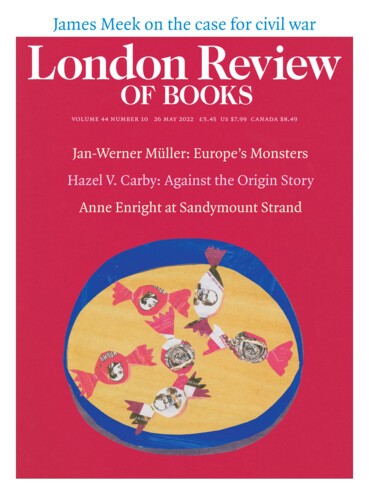Short Cuts: Bellicose and Underinformed
James Butler, 22 September 2022
Despite lasting almost two months, the process of selecting Britain’s new prime minister has revealed little about what Liz Truss intends to do. Her short victory speech contained pro forma praise for her predecessor and ritual execration of the defeated socialist threat. Her Downing Street speech turned on the Cameron-era cliché about an ‘aspiration nation’. She...





